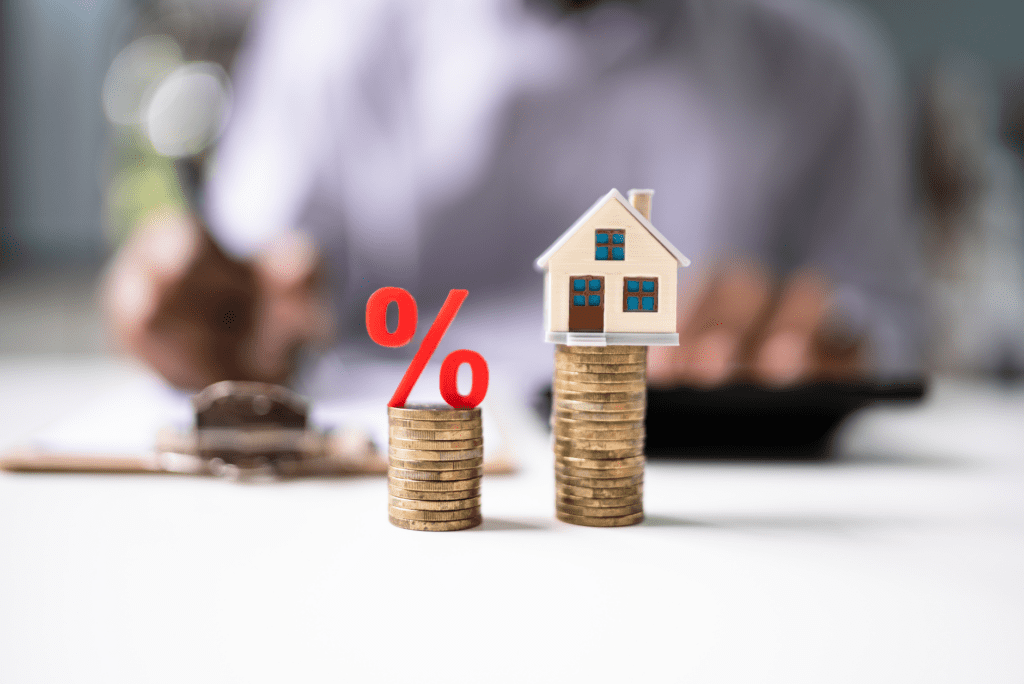Fluctuating interest rates have been making the headlines frequently over the last few years. And nowhere is this topic more urgent or relevant than when thinking of buying a house in Toronto. As average housing prices continue to climb, the question of “How are we going to afford this?” becomes ever more prevalent.
As timely as changing interest rates may seem, it has been a heated topic for decades. For example, did you know that rates actually soared as high as 21.75% back in 1981? Compared to today’s rate, that’s astronomical.
Still, even the smallest fluctuation can impact your affordability and make the difference between getting approved for the full amount you need, coming up short with your financing, or not getting approved at all. No wonder it seems everyone holds their breath every time the Bank of Canada is on the cusp of another announcement. But what do changes in the rates really mean as you embark on the search for your Toronto home? Let’s take a closer look.
When Interest Rates Are on the Rise
Rising interest rates are something many people dread, but they aren’t always bad news for everyone. Like almost everything else in life, it’s all relative.
For someone who has their house paid off and is lucky enough to have some savings in the bank, high interest rates are excellent news. There is no mortgage to worry about, and any funds in the bank are hard at work making more money.
For those trying to qualify for a mortgage, high interest rates can be more of a challenge. For one, you have higher monthly payments to look forward to as more of your money goes to interest than to the principal. Even worse, the stress test becomes more stringent. Banks may be inclined to lend you less than you need to buy the house that you want.
That said, there is a silver lining even for home buyers. Interest rates may be high, but housing prices often fall as a result. This allows you to buy a home for less. And if you renew your mortgage at a lower rate, your payments will eventually decrease.
Are you looking for more creative ways to buy your next home in Toronto? The insights below might help:
- Could a Cosmetically Imperfect Home Be the Best Choice in Toronto?
- A Guide To Buying Your First Home In Toronto
- Innovative Strategies To Make Toronto Real Estate More Affordable
When Interest Rates Are About to Fall
For buyers, low interest rates are something to celebrate. A lower cost of borrowing makes it easier to qualify for financing. Since the banks are more generous with their lending, you may be able to afford a bigger home in a better neighbourhood than you otherwise thought.
That said, there is also a downside to low interest rates. As rates fall, more buyers tend to enter the market. The result is that competition for new listings increases, and so do housing prices. Just ask anyone who bought their home during the pandemic of 2020 to 2021 when interest rates were at an all-time low.
Types of Mortgages
Fluctuating interest rates can impact your decision on what type of mortgage you choose to get. In Canada, mortgages typically fall under two categories:
Variable Mortgages:
Variable mortgages will fluctuate as interest rates rise and fall. When rates drop, more of your payment goes toward the principal of your loan, potentially allowing you to pay it off faster. On the other hand, you will pay more as rates increase or take longer to pay off your loan.
When to Choose a Variable Rate Mortgage
Variable loans can seem riskier than fixed mortgages since your payment amount fluctuates over the course of your term. That said, variable mortgages often come with lower rates, which has historically made them less expensive than fixed mortgages. However, that is not always the case. You’ll want to work with a mortgage advisor to see what would be the best option in the current climate. For example, if interest rates are currently high but are expected to go down, a variable rate can save you in the long run. If you like the idea of the flexibility a variable mortgage allows but not the fluctuating payments, you still have options. Your lender may arrange for a steady monthly amount but change the allocation of how much goes to interest rather than the principal.
Fixed Rate Mortgages
Unlike variable loans, fixed rate mortgage rates are determined by the value of government bond yields rather than the Bank of Canada. As a result, they tend to be more stable, which allows you to lock in your rate for up to a five year term. The advantage is precisely what you might expect; you don’t have to worry about rates going up and affecting the affordability of your monthly payments. The downside is that you won’t save money when interest rates fall, either.
Which West End neighbourhood is right for you? The posts below will give you food for thought:
- What Are Toronto’s Most Affordable Neighbourhoods for First-Time Buyers?
- Best Neighbourhoods In Toronto For Young Families
- Why Do Families Love Rockcliffe-Smythe?
When to Choose a Fixed Rate Mortgages
If you have a set budget and the idea of knowing what to expect each month appeals to you, a fixed-rate mortgage might be the better choice. Once again, you’ll want to take a look at what is happening in the current market before finalizing anything. For example, imagine buying a house when interest rates are well below average. You know it’s only a matter of time before they begin to creep up again. Locking in an all-time low rate can save you a considerable amount of money over your term.
As you can see, there’s a little bit of thought and analysis that goes into deciding what type of mortgage is best for you and when. Fortunately, this isn’t a decision you’ll have to make alone. Your real estate agent will be able to offer you excellent advice in addition to putting you in contact with a reputable mortgage broker. When you understand the financing aspect, your journey to becoming a Toronto homeowner is well on its way.
Are you ready to begin your quest for a new home in the West End? We are happy to guide you every step of the way. Reach out to info@sidorovainwood.com or call 416-769-3437 to take the next step.



